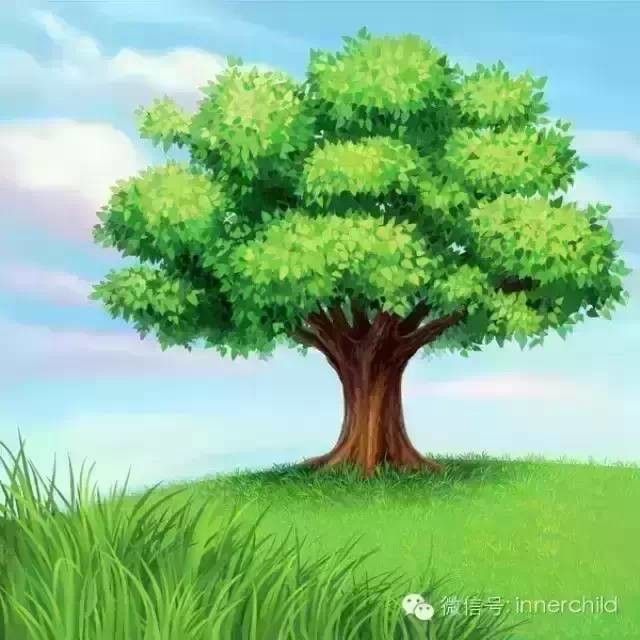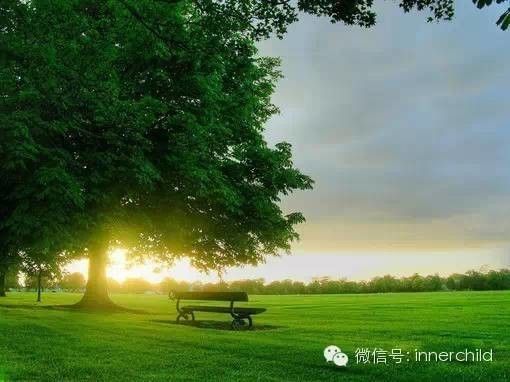Every Seven Years You Change
Rudolph Steiner, the great teacher of Anthroposophy said that the seven-year cyclescontinue throughout life, and are of the utmost importance to doctors,teachers, psychiatrists and the social sciences. Without some smattering ofthese changes it is difficult for anyone to understand the relationship of anygiven individual with his or her environment. So I have tried to summarise whatSteiner and others have said about the cycles.
伟大的人智学老师鲁道夫·斯坦纳(Rudolph Steiner)说过,人的一生中每七年的周期,对医生、教师、精神病学家、社会科学是至为重要的。如果对这些变化不略知一二,任何人都难以理解个体与他/她所处环境的关系。所以我试着总结了斯坦纳和其他人对这些周期的描述。
28-35years
The changes become more subtle as the yearspass. The next cycle from twenty eight to thirty-five, for instance, is onewhere the creative process of mind becomes most active. Researchers andinventors seem to make their greatest advances during these years. It isinteresting to note that physical science finds evidence of the reason for thisin the fact that the association centres of the brain come to their peak efficiency at about thirty-five years of age.
28-35岁
随着年数渐增,变化更加细微。从28岁到35岁的新的周期,举例来说,是意识的创造性进程最为活跃的阶段。研究者和发明者似乎在这几年带来最伟大的进步。有趣的是,物理科学发现了一些证据来揭示原因,事实上,大脑的联结中心会在35岁左右达到效率的最高峰。
This is even more interesting when we seethat most of the great religious teachers and philosophers came to some vitalexperience at thirty-five. Jesus, Buddha, Paul, Dante and Jacob Behmen were allin the region of thirty-five at the point of their greatest insights. It wouldseem then, that if there is an inspirational influence at work in the life, it would possibly reach its peak during these years in and around thirty-five.
更为有趣的是,大多数伟大的宗教导师和哲学家,在35岁都获得了至关重要的体验。耶稣,佛陀,保罗,但丁,雅各布·拜门都是在35岁前后产生了最伟大的洞见。于是,似乎可以看出,如果生命的工作中会诞生一些具有启发性的影响,可能就会在35岁时或其前后达到高峰。
Here we take stock of ourselves and the emotional influences that have shaped our personality. We begin to determine what is us and what traits we have been pressured by family, peers or society to adopt.
在这一阶段,我们开始估量自己,审视塑造了我们性格的情绪上的影响。我们开始决定什么是真实的自己,什么特征是我们因家庭、同辈、社会的压力而被赋予的。
35-42 years
From thethirty-fifth to the forty-second year, depending upon one’s personality andwhat one’s circumstances allow, one begins to feel a new restlessness. In somedegree a desire to share whatever one has gained through life with others comesto the surface. Thus we find many successful business men building libraries,or aiding colleges and the arts at this period in their life. What has beendeveloped or realised can be taken to greater subtlety during this period. Thisis almost like unfolding something, perhaps similar to the way a flower unfolds a bud that has been developing in earlier phases of its growth.
35-42岁
从人生的第35年到第42年,根据个体的性格及其所在的环境是否允许,他开始体会到一种新的不安。从某种程度上来说,他想要与他人分享“自己在人生中所得”的愿望显露出来。因此我们会看到很多成功的商人在他们人生的这一阶段建造图书馆,或者向学院、艺术馆等捐助。这一阶段中,已经发展或实现的特质可能会被带入更精微的层次。这几乎是在让一些特质展露出来,或许就像一朵花绽放了它成长初期已经长成的花蕾。
This is when we reassess the results of what we are doing externally in our life. Ourrelationships, careers, habits and the ways we interact are all put underscrutiny and modified or changed. It’s a time of facing up to what does and what doesn’t satisfy us.
我们在这一阶段开始重新评估我们在外部世界的行动所带来的结果。我们的关系、事业、习惯、以及与他人互动的方式,全部会被详细地审视、纠正或改变。这是要面对自己的满意和不满的时候。
You mayreach heights or realisation and creativity not touched previously. Theprofound breakthrough of ones innate genius that emerges around this time willno doubt be expressed in some degree. However, whatever is attained or realisedwill be enlarged and synthesised in later periods.
你也许会达到之前未曾启及的高度、没有发现过的了悟,或是触碰到未被开发的创造力。在这一时期出现的,一个人内在的天赋所迸发的深刻的突破性进展,毫无疑问会在某种程度上展露出来。然而,无论得到、实现了什么,在之后的阶段都将被扩大并整合。
42-49 years
In the next cycle from forty-two until forty-nine a major change usually takes place. It is as if one takes all of one’s life experience up till this age and begins to digest it, and extract from it new ideals and a new direction in life. There is often tremendous unrest in this period and that following it. The unlived aspects of life cry out to be recognised and allowed. The desire to make a mark in life if it has not already been achieved presses for action here.
42-49岁
在42-49岁的这一周期,通常会发生一个重大的变化。仿佛一个人将自己半生所有的经验在这个年纪拿出来,开始消化,再从中汲取新的理想以及人生中新的方向。在这一阶段以及随之而来的时期,通常会有巨大的动荡。生命中未被充分活出的面向大声呼喊着要得到认同和允许。要在人生中写下精彩一笔的愿望,若之前未被达成,在这时就会在压力之下呼唤行动。
At this point it appears to many of us that we have reached the mid point of our life and from here on there will be a decline. Even if this is not so it is often felt very strongly and acted upon in one way or another. People change partners, life directions, and even attempt major personal changes, although these latter may have begun in the last cycle.
在这个时候,我们中的许多人会以为自己已经走到了人生的中间,自此之后就会开始走下坡路。即使事实并非如此,我们通常会对此有非常强烈的感受,并用这样或那样的方式来依此行动。人们会更换伴侣,改变人生方向,甚至试图进行重大的个人改变,尽管后者可能会在最后一个周期才开始。
Also, the emotional age and the maturing of love may at last show signs of an unconditional love. If this is not appearing in small degree, it might be one is still locked in earlier ages. Strangely, many of us maintain the emotional age of a child right into mature years, feeling all the fear of abandonment, jealousy and possessiveness of our childhood. Many divorces and new directions appear around this period.
同时,情感的年龄和爱的成熟度最终会显示出“无条件之爱”的迹象。如果这不是以轻微的程度显露的,有可能这个人还是被封锁在早年的状态中。奇怪的是,我们中的许多人在进入成熟的年纪后,情感年龄仍维持在孩童的阶段,感到童年时期被抛弃的恐惧、嫉妒、占有欲。许多离婚及新的方向都在这一阶段出现。
In these years we move from old stereotypical roles with a new found confidence in our individuality. We are prepared to please our self, rather than society and gain a real understanding of our uniqueness, accompanied by a sense of urgency to express our true self before it gets too late.
这一周期中,我们从老旧、一成不变的角色中转化,以一种重新树立的对个性的自信取而代之。我们准备好去取悦自己而非社会,并获得对自己独特性的真正的理解。与之相伴的是一种要表达真正自我的紧迫感,在一切都为时过晚之前。
49-56 years
In this, and the next cycle from forty-nine to fifty-six, and the periods that follow, the physical changes bring about a mental or spiritual climax. The decline of physical prowess and vitality, forces the person to direct their attention inwards more frequently. Any problems of our personality, such as maladjustment and our repressions, will undoubtedly become more urgent in these years. This reacts upon one’s marriage and professional life alike. The problem is that we have to learn to live with ourselves in a new way. We slowly have to adapt to our new-old body, and habits of long-standing do not die easily.
49-56岁
在49-56岁的周期,以及之后的周期内,身体的变化会带来精神和灵性的高峰。身体不再矫健、活力的衰退,逼着这个人将注意力更频繁地关注内在。任何性格问题,比如失调、压抑,毫无疑问地会在这一周期更为紧急。这也会反应在一个人的婚姻和职业等领域中。问题在于,我们必须学会以一种新的方式来和自己共处。我们必须渐渐地适应自己刚刚变老的身体,适应这种长时间不容易“翘辫子”的生活状态。
This is when we take an inventory of our life. It’s a time of spiritual questioning and review of our life purpose. If we haven’t successfully understood who we are by this stage and achieved our goals, then depression, moodiness and turmoil will plague both our waking life and our dreams.
这是我们清理人生的时候,是时候进行灵性上的质疑、回顾我们的人生目的了。如果我们到了这一阶段仍未弄清自己是谁,也没有实现自己的目标,那么抑郁、情绪多变、混乱将不仅在我们醒着的时候折磨我们,也会令我们的梦境无法安逸。
56-63 years
This period is often a time of inner tranquility and acceptance. At peace with oneself and more accepting of where we are and what we have achieved marks this period. But many things that were lying unlived within you might arise at this time, either as a form of unrest, or as directly living out those things that duty or work – or even self restraints – kept you from doing or being.
56-63岁
这一阶段通常充满内在的宁静与接纳。与自己和平共处、更能接纳我们所处的环境、我们所实现的成就——是这段周期的闪光点。但许多潜藏于你的内心却未被活出的面向,这时可能会浮现出来:要么是以不安的形式出现,或者直接活出那些被责任、工作——甚至自我约束——阻碍着去做的事,去成为你想成为的人。
Usually your life situation begins to change in this stage. There is the start of a great shift and adjustment, both in terms of external activities, but also in how you deal with and feel about relationships. Part of the difficulty is that you have lived a long life as a younger person, and the old ways of dealing with things is often difficult to let go of as things change. The opportunity to experiment more fully in life helps you to reassess yourself and what new way of relating and being suits you or is satisfying.
通常你的生活处境会开始在这一阶段发生改变。重大的转化和调整要开始了,它不仅关乎你的外在活动,而且体现在你对关系的处理能力以及感受上。困难的原因之一,在于你作为年轻人已经活了很久,而要放下处理事情的惯用方式是很困难的,因为事情一直在改变。能更充分地在生活中做实验的机会,帮助你重新评估自己,找寻更适合自己的、更能知足的新方式来与他人联系、与自己共处。
The psychiatrist Carl Jung and others such as Nietzsche developed a whole theory about this period of life that he called Individuation. Perhaps the influence of this began in the last periods during the forties, but becomes more marked now. As an individual we may come to recognise that our make-up is formed out of the collective experience of our family and the culture we have been exposed to. The question, “Who am I,” leads us to look more fully into what makes us who we are. This awareness and the insight gained from it transforms us. The change is that of becoming more fully independent of the forces that formed us. This means we create something new of who we are, and perhaps leave something of this new self in the world by what we do, create or live. Not every one undertakes this diving into the depths of self to discover ones core being.
精神病学家卡尔•荣格(Carl Jung)以及尼采等人,针对这一人生阶段发展出了完整的理论并称之为个体化(Individuation)。也许个体化的影响在上个周期(四十岁左右)就已经开始,但是现在更为明显。作为个体,我们可能会逐渐意识到,我们的“面具”是基于家庭的集体经验以及所处的文化而形成的。“我是谁”的问题引领我们更全面地观察:是什么造就了如今的我们?对此的觉知和从中取得的洞见将会转化我们。改变就在于,我们会更全然地独立于造就我们的那些力量。这意味着,我们创造出了新的自己。或许通过自己所做的、创造的、生活的方式,我们就将崭新自我的一些品质留给了世界。并非每个人都会着手去潜入自我的深层,以发现存在的核心。
To quote from the website Soul-Guidance, “Individuation means that one becomes a person, an individual, a totally integrated personality. It is a process of self realization during which one integrates those contents of the psyche that have the ability to become conscious. It is a search for totality. It is an experience that could be formulated as the discovery of the divine in yourself, or the discovery of the totality of your Self. This does not always happen without pain, but it is necessary to accept many things that normally we would shy away from. Once a person has accepted the contents of his unconsciousness and has reached the goal of the individuation process, he is conscious of his relationships with everything that lives, with the entire cosmos.”
引用Soul-Guidance网站上的一段话:“个体化意味着真正成为一个人,一个个体,一个完全整合的人格。这是一个自我了悟的过程,其中他会整合心智的内容,这些心智具备觉知的能力。这是对完整的追寻。可以说,这样的经验是在发现你内在的神性,或是在发现你的完整的自我。不带痛苦地去经历是不常见的,但是去接纳许多我们可能会羞于面对的事是有必要的。一旦一个人接纳了他的无意识所包含的内容,并且实现了个体化进程的目标,便会注意到自己与一切有生命的事物、与整个宇宙之间的联系。”




